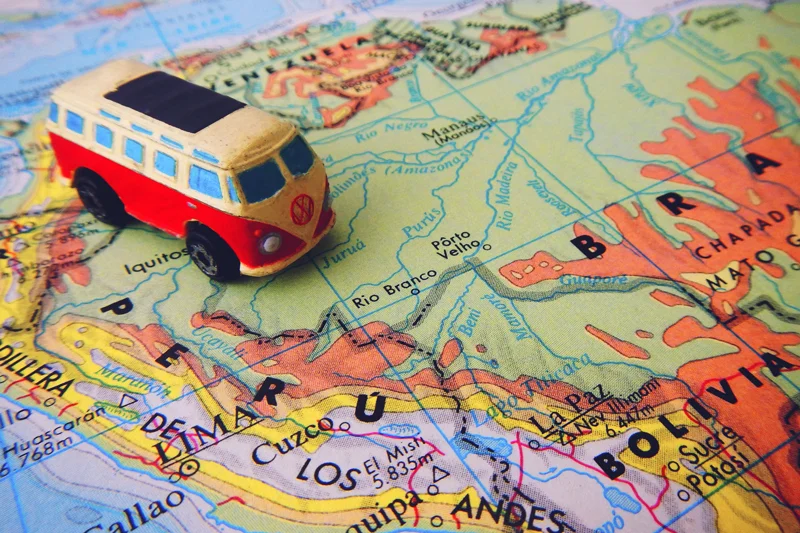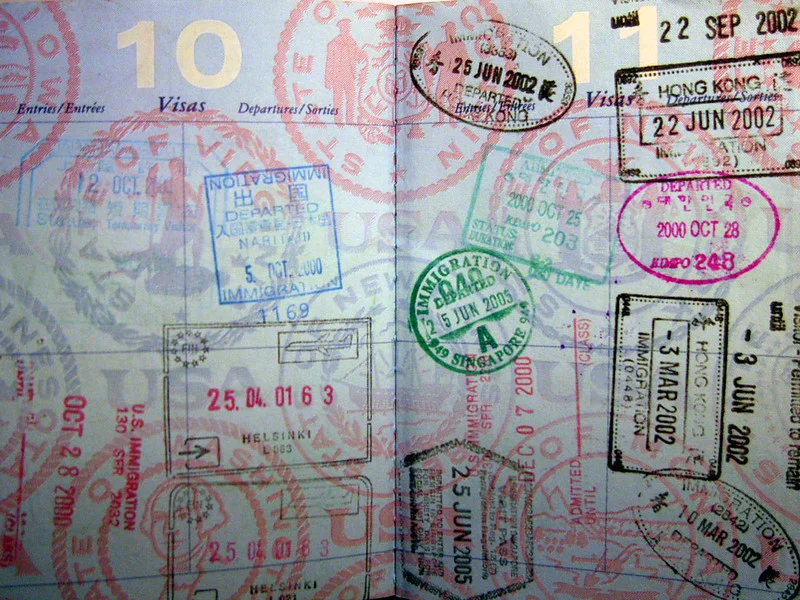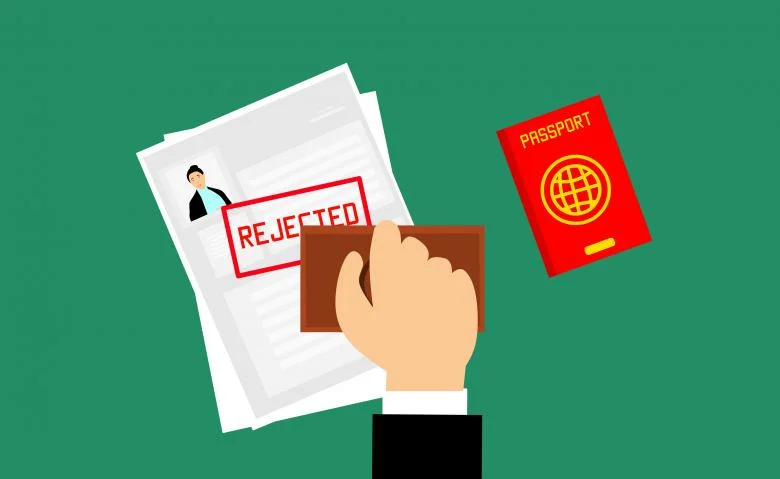Getting a visa can be a daunting task, even for seasoned travellers. With so many different requirements and regulations to navigate, it’s no wonder that many people feel overwhelmed when applying for a visa. However, there are some common reasons why visas are refused, and by understanding these reasons, you can take steps to avoid them.
Whether it’s providing incomplete or inaccurate information, failing to meet the financial requirements, or not having a clear reason for your trip, there are many pitfalls to watch out for Visa application refused. By doing your research and being prepared, you can increase your chances of getting your visa approved and enjoy a stress-free travel experience.
Visa application refused? Understand the Countries Visa Policy
If you want to understand a country’s visa policy, you need to know why embassy and consulate background checks take place. Visa policies are primarily in place to safeguard a country’s national interests.
Each country has a legitimate concern about tourists overstaying their visas and working illegally. Tourist visas are commonly used to enter the country, but many visitors never return. Overstaying visas and working illegally, even though the stay is only 30 days, is common.
In the majority of these cases, the primary reason for visa rejection is OVERSTAYING. You must demonstrate that you have NO BAD INTENTION, i.e. that you will not stay longer than permitted stays and intend to return to your home country.
Provide as many straightforward and honest answers as possible in all instances. This article will demonstrate how to avoid making common visa rejection errors. The primary reason for visa rejections is a variety of factors, including incorrect documentation and false statements on your application form, all of which can be easily avoided by following a few simple guidelines.
This article provides tips on how to avoid visa application rejections. However, it is important to note that following these tips does not guarantee a successful outcome for your application. If you require assistance with your application, you can find more information here.
Unjustified or incorrect visa type
If you intend to visit a country for business purposes, you must apply for a business visa; if the intention is tourism, then apply for a tourist visa. Do not apply for a tourist visa if your visit is for business purposes.
Furthermore, avoid applying for a visa for an extended period. Many people apply for a visa for fifteen to twenty days, or even a month, only to deny their application. Long-term visa applications are frequently scrutinized by consular officers, especially if it is a first-time trip. Who will do your job if you go on a long vacation? How could you even find the cost of such an extended stay? When dealing with consular matters, a slew of other issues arises.
There are also Single Entry and Multiple Entry visas. Never request a Multiple Entry visa if you are applying for a visa for the first time. Even if you require one, please provide adequate evidence to support your need for a multiple entry visa. Some embassies will only issue a single-entry visa, even if you request a MULTIPLE ENTRY. They will assume you are ineligible for a MULTIPLE ENTRY visa.
Unclear or unjustified purpose of travel

What makes you want to go to that country? When applying for a visa in any country, this is almost always the first question asked. You’ll notice that every visa application form asks, “Are you travelling solely for sightseeing?” Do you intend to pay a visit to friends or family? Are you going to a seminar or a conference? Are you going to see a client?
Answer them honestly, regardless of the reason for your visit. Because the consular knows how to twist words and ask the same question repeatedly to get to the actual answer, you must always answer honestly. They will almost certainly request your tour itinerary for tourism purposes.
Many embassies will also request confirmations of hotel and airline ticket bookings. If they believe your itinerary is unrealistic based on your tour plan, hotel reservations, and airline tickets, you will have a problem. The embassy may request a letter of Invitation and, in some cases, a grantee letter if you are visiting family or friends.
Various embassies may even ask for additional documentation to establish the relationship. As a result, establishing your relationship becomes more difficult if you are not a close relative.
In this case, my advice is to take photographs together on special occasions such as weddings, birth, and death anniversaries if you have friends or family members from another country who visit the country regularly. This type of family photographs may be discovered as proof in the future.
Misconception about Invitation or sponsor
Many people believe that they will automatically be granted a visa; however, this is a common misconception. Expect it to be challenging to obtain a visa if you do not have a close family member. Why? Because it goes without saying that knowing someone in that country makes it easier to settle down there, or so the consular will believe about you. Knowing someone in another country does not guarantee that embassies will grant you a visa without conducting a background check.
Insufficient proves to return
Bear in mind that the embassy is always suspicious that the applicant will not return and remain in the country illegally. Thus, in this case, you must demonstrate that you have a compelling reason to return to the country following the end of the given visa. You must demonstrate why and what motivates you to leave that country and return to your country of origin, for example:
Employment The embassy’s consular division will conduct a thorough examination of your job description. If you have worked for a company for an extended period, this is excellent, which is why you are required to provide a certificate of employment as part of the visa requirements so that they can inspect your every detail. If they see that you have recently joined or resigned, they will assume that you intend to work in their country, resulting in a visa denial or refusal.
Business If you own a business in your country, it plays a vital role, whether large or small, demonstrating that you are guaranteed to return. The company should be genuine, not fictitious. You must maintain current information regarding your business’s registration documents, current account balance, audit report, and tax return.
Properties If you own land, a flat, or a car, they will play a significant role in obtaining a visa. Submit valid proof of ownership along with the application form.
Shaky employment status
Consider this: will anyone believe you if you have a great job or a successful business but no documentary evidence? The embassy does not work solely on words; the proof is required. Even if you are a freelancer, you should have something to show for it, such as a PayPal account statement or a screenshot of a work contract.
Untraceable or excessive funds in the account
You have sufficient funds in your bank account, but there is no evidence of their origin. You must demonstrate financial stability for travel by providing bank documents. We understand that we must have a sufficient amount of money in the account, but no one knows how much money that is.
Even if we are unaware, we must calculate costs before visiting a country, don’t we? For instance, airline tickets, hotel accommodations, food, and other expenses. European countries must maintain a daily budget of 120 euros solely for travel expenses.
Weak Travel History

Sometimes visa applications are more like job applications. All stamps and visas will serve as our RESUME. Good travel history sometimes makes your case stronger in terms of visa applications. If embassies see that you have visited many countries, they believe that you may come back, and you are not the one who stays illegally.
Also, having a lot of travel history doesn’t mean you’ll get a granted visa, and those who don’t have good travel history means they will get reject immediately. Having a good travel record means chances are good and positive in your case. I would say travel visa-free or easy to get visa countries first. When you have a good travel record, you can apply to countries where visas are required.
Inconsistent information and interviews

First and foremost, I would like to emphasize that the application form should be taken very seriously, as it is the most important document when applying for a visa in any country. You must fill out this application form in its totality. It contains all of the questions and answers necessary to complete the application process. Fill out the application form completely and accurately.
Fake documents & incomplete application

There are certain conditions and documentation requirements that must be met before making each application. The issue arises when certain documents are in short supply. Some people use brokers to submit applications to the embassy with fake documents in the hope of getting a visa quickly, but the reality is quite different. Consul officers usually are highly trained and know what is fake and what is real.
If you are caught with fake documents, you will most likely be barred for a certain number of years and may even be turned over to law enforcement. Don’t submit or produce any forged documents, in my opinion.
Some papers are challenging to obtain, so I’d recommend waiting a few days and attempting to get them the proper way. For example, it is normal for some people who live abroad to not have an income tax, but if they wait and register correctly, can they not?
By submitting your application in good time, you can avoid the entire unnecessary negative outcome. I hope this Visa Application Denied | Common Reasons and How to Avoid Them article was beneficial in assisting you with your future visa application.

